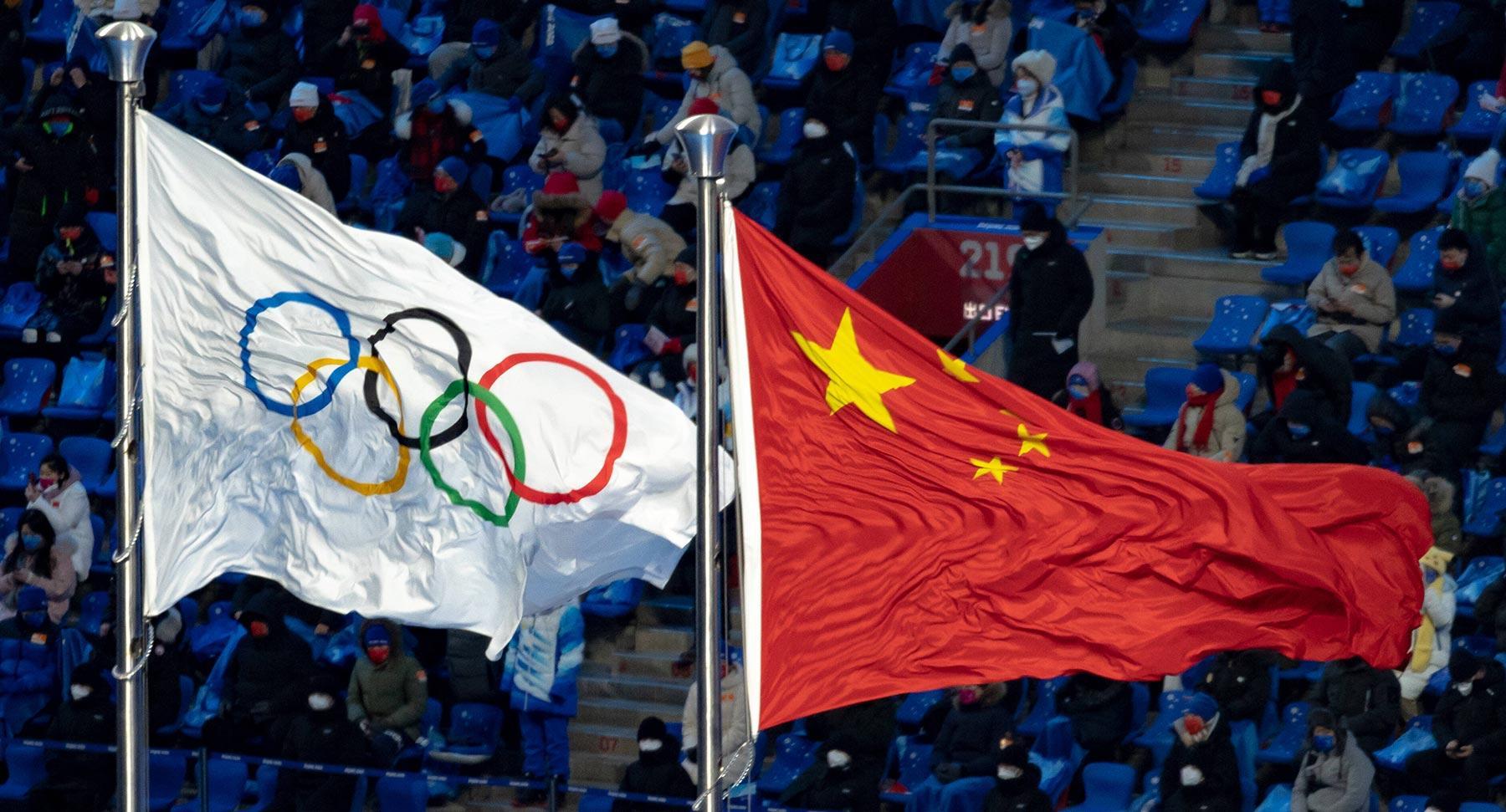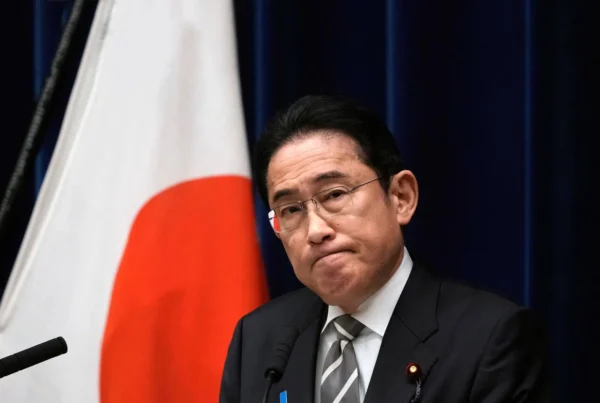The opening of the 2022 Winter Olympics was a splendid spectacle and an impressive display of China’s global soft power. While China and the IOC insist it is a global sporting event, critics also point to the human rights issues in China. The time may be ripe to reform the IOC.
Gustav Fauskanger Pedersen, 15 February 2022
On 4 February, the 2022 Winter Olympics opened at Beijing National Stadium, with all the required formalities, like welcoming speeches, parades of athletes, the Olympic Oath and national flags. The official theme of the opening ceremony was China’s willingness to pursue world peace. The official slogan of the Games: “Together for a shared future.”
The last leg of the Olympic torch relay and the lighting of the Olympic flame was carried out by China’s cross-country skier Dinigeer Yilamujiang, a member of the Uyghur minority population from the Xinjiang province of North-Western China. For many, this part of the ceremony was seen as an attempt to dissuade criticism and stifle freedom of speech by creating a false impression of harmony and equality in the country. China’s ruthless persecution and internment in “re-education camps” of members of the Uyghur minority has led many nations, including the US, Australia, Canada and the UK, to issue diplomatic boycotts of the event.
Although Chinese officials have fervently denied any allegations of human rights abuses and possible genocide in the Xinjiang province, the evidence speaks to the contrary, and many international observers maintain their criticism towards the Chinese regime. This criticism was strengthened by China’s recent crackdown on pro-democracy movements in Hong Kong.
Concern has also been raised regarding athletes’ right to freedom of speech while participating in the games. They have on several occasions been warned not to speak out about human rights abuses in China. Nancy Pelosi, the US House of Representatives Speaker, went so far as to warn athletes against speaking out about this issue, so as not to incur the anger of the government in China. Both Dutch and British athletes have been urged to leave their phones at home, traveling instead with temporary phones in order to prevent espionage from the host nation.
While Thomas Bach, President of the International Olympic Committee (IOC) since 2013, stated before the games that athletes did not need to fear punishment from the Chinese government, he indicated that athletes voicing their opinion freely might be subject to IOC disciplinary proceedings citing IOC Rule 50.2. and the official Rule 50.2 Guidelines for the Beijing Olympics published in November 2021. According to these Guidelines, freedom of expression is not allowed: “during official ceremonies …during competition on the field of play, in the Olympic Village.” Many leaders in sports, politics, academia and media have in the past urged the IOC and IPC (International Paralympic Committee) to amend this rule to reflect a stronger commitment to human rights, racial/social justice, and social inclusion. A recent petition calling for amendments of Rule 50.2 was submitted to Thomas Bach in July 2021.
Some athletes have complained about the conditions and food provided when in COVID-isolation, which brings up one of the most significant issues surrounding the 2022 Olympics: COVID-19. China has made significant efforts to keep the event as virus-free as possible, with no foreign spectators being allowed and Chinese public spectators being held in separated closed-off areas, and strict testing and quarantine rules. Nevertheless, athletes have been complaining about testing and isolation regimes being confusing, unpredictable and chaotic. The unfortunate athletes who test positive while in the Olympic Village have complained about being carted off in ambulances to less-than-acceptable living and non-existent training conditions.
An issue that has been raised by athletes is the fact that many have been unable to travel to China in order to participate in the games, owing to testing positive for COVID-19 shortly before departure. Some have pointed out that the games are supposed to be competitions between “the best of the best”, not between those who were lucky enough to avoid getting infected by the highly contagious omicron-variant of the virus. Many have argued that COVID-concerns alone should have merited postponing the games.
Complaints aside, many of the efforts made to keep the 2022 Olympics relatively COVID-free should be commended. Many athletes are undoubtedly just happy to get the chance to compete in the Olympic games, and the Chinese organizers have found unique and often impressive solutions, such as the first high-speed train with 5G coverage connecting Beijing to Zhangjiakou (the venue of the Olympics). These impressive technological and infrastructure solutions have been employed to reduce the risk of contagion, without which the relatively low infection numbers seen would surely be impossible. It may be argued that the virus-related complaints are merely unfortunate instances of the sacrifices necessary to hold the games.
By no means is China solely responsible for the many issues surrounding the 2022 Winter Olympics, as the International Olympic Committee itself approved holding the Winter Olympics in China in 2022. There were initially six cities in the running to host the 2021 Winter Olympics, with Norway, Sweden, Poland and Ukraine quite rapidly withdrawing their bids, citing IOC arrogance, exponentially rising costs and poor public support for the bids. This left two, China and Kazakhstan, in the running.
Norway and Sweden are affluent countries with rich traditions in winter sports. The two countries generally top the statistics of most medals won in the Winter Olympics, despite their comparatively small populations. When such countries find it prudent to withdraw their bids, one might ask whether there is a fundamental problem in the IOC itself, including the need to reform this powerful sports organization.
The Olympic Charter fist formulated by Pierre de Coubertin around 1898 and published in 1908 has seven Fundamental Principles. The second principle states: “The goal of Olympism is to place sports at the service of the harmonious development of humankind, with a view to promoting a peaceful society concerned with the preservation of human dignity”. The sixth principle states that: “The enjoyment of the rights and freedoms set forth in this Olympic Charter shall be secured without discrimination of any kind, such as race, colour, sex, sexual orientation, language, religion, political or other opinion, national, social origin, property, birth or other status.” It can be argued that not only the Beijing Olympics but also the IOC have violated these Fundamental Principles.
It may be concluded that it is high time to return to the true meaning of the Olympic ideal. Political or business interests should have no role in the Olympic Games, which should solely focus on celebrating excellence in sports. It is also time to reform the IOC and limit the IOC’s power, so that they conform to the Olympic Charter.





